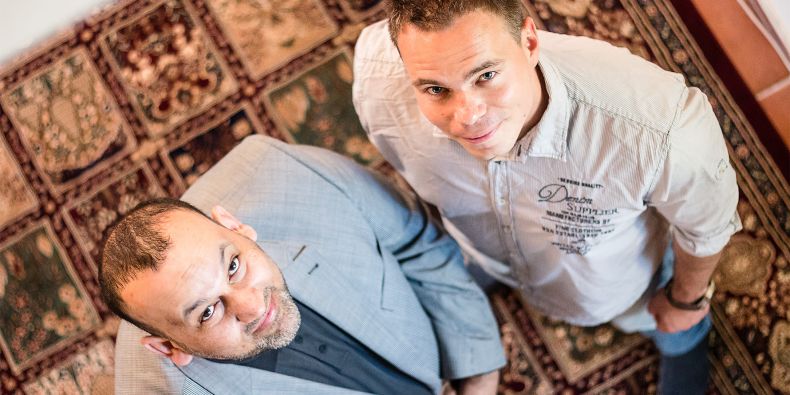Students of Security and Strategic Studies switched their usual classroom for a more authentic environment at the beginning of May. Outside the school, they organise “Security Evenings”, and this time it was with Islam expert Josef Kraus. It was therefore fitting that the evening took place at the new Ahlulbayt Islam Cultural Centre in Královo Pole. The centre is meant as a meeting place for people from different religious and political worlds.
The building looks inconspicuous from the street as well as from the inside. There are four smaller classrooms and two large rooms, one with a conference table, the other with two big carpets and carved columns with Middle Eastern designs. It was here that students met to discuss Shia Islam and current political and social affairs in Iran. Josef Kraus, an expert on military issues and armed conflicts, spent two months there this winter.
“I have known Mr. Adday, who runs th e new centre, for several years. We met when I was trying to gain some information about the Shia form of Islam, because there are only a handful of Shias in Brno,” says Kraus about the beginnings of moving the talks about his experience outside the Faculty of Social Studies classrooms.
The first lecture is meant to be only the beginning. Kraus is considering moving his standard lectures on Islam radicalism, as well as events hosting foreign guests, into Královo Pole from next semester onward. “In a way, collaboration with a Muslim centre is also a reaction to the current public debate. I find it fitting for Masaryk University to have its say in it in this way,” he adds.
Abdulrahman Adday, who is on the other end of the cultural spectrum, is of the same opinion. “We want to open the centre as much as possible to students and the public, explain our culture and religion to them and build metaphorical bridges,” he says. Adday also wants to provide space for family celebrations and, in the future, Arabic courses.
“The local people especially had an idea that we were building a mosque or a place of prayer, but that’s not the case. What we have built is more a cultural centre than a religious one, though religion is still a part of it,” adds Adday, who has lived a very interesting life.
At home in the Czech Republic
Adday arrived from Iraq thirty years ago and for many years he has been running a business here in the agriculture sector. He put down roots in Southern Moravia a long time ago. His son Adam was born here and is currently finishing his studies at the MU Faculty of Economics and Administration.
The first lecture organised in the new centre featured Kraus’s detailed analysis of the political situation in a country which, for a number of years while Adday still lived in Iraq, used to be right next door for him. It made Adday look back at his homeland, and without the lecture, he probably wouldn’t stop to think about the situation of his former neighbours.
“Mr. Kraus did a great job, describing things that really are outside an average Iraqi’s scope of thinking,” said Adday in reaction to the lecture. In the future, he might occasionally appear as a guest in master’s level political science courses. As he concludes, “My advantage is that I know both the Muslim and the Czech environment and I can put myself in the shoes of both.”
